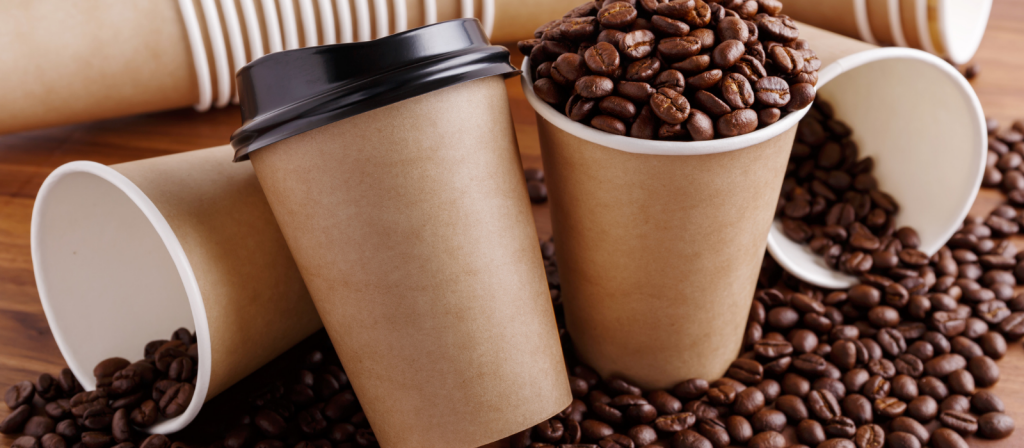BIG changes in waste reduction policies announced; we highlight the areas of change that will affect your business.

Minister Eamonn Ryan has wasted no time in rolling out a new series of aspirations and timelines in keeping with agreed Government targets to reduce waste.
The biggest changes to our businesses will be the introduction of a Deposit Return Scheme for plastic bottles AND aluminium cans. Measures to control the usage of disposable single-use cups used for both hot and cold beverages are to be introduced, as will a requirement to “reward” a user of a reusable cup by way of discount.
We have reprinted the Section of the Waste Policy below.
CSNA has written to the Department requesting them to ensure we are included in the Stakeholder Consultation due to be held presently.
- We will introduce a deposit and return scheme for plastic bottles and aluminium cans. In delivering this, we will work closely with the food and drink industries, retailers, waste collectors and treatment facilities, and our colleagues in Northern Ireland.
- This will be delivered via the following steps:
- Public consultation on design options (Q3 2020)
- Public consultation on preferred model and draft regulations (Q1 2021)
- Commencement of underpinning legislation (Q3 2021)
- Introduction of scheme (Q3 2022)
- The legislative basis for the delivery of a DRS scheme will provided through the transposition of the Single Use Plastics Directive (3 July 2021).
- In line with the requirements of the SUPD we will introduce EPR requirements for:
- tobacco products;
- balloons;
- wet wipes (those not subject to an outright ban); and
- fishing gear.
- We will significantly reduce the amount of SUPs being placed on the market by 2026 (relative to 2022) and will develop an action plan by July 2021 for doing this.
- We will continue to work with the Office of Government Procurement to ensure public bodies are fully supported in their efforts to avoid single use plastics consumables.
- We will implement an ‘on request’ policy for single use plastics for food and beverages.
- While Member States are prohibited from banning packaging from being placed on the market, the SUP Directive does give discretion to ban packaging items under a notifiable procedure in accordance with Directive (EU) 2015/1535. Using this mechanism we are committed to banning a further range of SUP items to include but not limited to the following:
- Wet wipes (non-medical)
- SUP hotel toiletries
- SUP sugar and condiment items.
Coffee Cups
22,000 coffee cups are disposed of in Ireland every day, equivalent to a rate of 6 per second, 200 million annually in Ireland and 500 billion globally. Reusable alternatives already exist for take-away coffee cups – this is an entirely avoidable, preventable waste stream and encapsulates the role of personal choice in effecting the transition to a circular economy. Working with the EPA and eNGOs including the Conscious Cup Campaign, we will work over time towards the elimination of this waste stream through the following actions:
- Introduction of the so-called “latte levy”: A consultation paper was published by the A Waste Action Plan for a Circular Economy | Ireland’s National Waste Policy 2020-2025 33 Department in late 2019 which outlined proposals with regard to environmental levies, including on these products. This is available on the Department’s website.
- Trialling the elimination of coffee cups entirely in selected towns, Higher Education Institutions and other transport/commercial centres.
- The introduction of measures to ban their unnecessary use (such as sit-in cafés) and to oblige retailers to give a price reduction to consumers who use reusable cups.
- Education and awareness programmes.
- An eventual full ban on disposable cups.
Cold Drinks Cups
Disposable cold drinks cups are a particular challenge in Ireland as the reusable culture has not made its way as easily into the fast food sector and, more importantly into takeaway beverage cups which are different to coffee cups because they traditionally use a straw. Recent initiatives at sports events at which only reusable cups have been provided are welcome and provide clear examples of how this waste stream can also be eliminated through a blend of incentive and education.
- To tackle the proliferation of disposable cold drinks cups we will work across government to examine the licensing of large scale events where plastic cups (without lids and straws) are used for cold drinks with a view to mandating specific conditions prohibiting the use of disposable cold drinks cups.
- We will develop proposals for a levy on cold drinks cups, in line with the latte levy.
- We will work with stakeholders (e.g. IBEC, Restaurants Association of Ireland, ISME) to promote reusable alternatives.
- We will legislate to ban their unnecessary use (such as sit-in cafés) and to oblige retailers to give a reduction to consumers who use reusable cups.
Food Containers
Food containers, as defined under the SUPD, also present a complex challenge given the range of products and packaging types associated with them. Food containers are prevalent in the fast food and retail sectors as well as garage forecourts, cafés, restaurants. There is no “one size fits all” in terms of reusable options for the myriad of food containers on the market, further complicated by the fact that replacement options must meet food grade quality. Work is underway at present, with our EU colleagues, to identify the food containers for which consumption reduction measures should be introduced in Ireland.
- We will impose environmental levies on food containers (as with coffee cups and cold drinks cups).
- We will work with stakeholders (e.g. IBEC, RAI, ISME, EPA) to research and promote reusable alternatives.
- We will work across government to examine the licensing of large scale events with a view to mandating specific conditions prohibiting the use of non-reusable food containers.
- We will legislate to ban their unnecessary use (such as sit-in cafés).